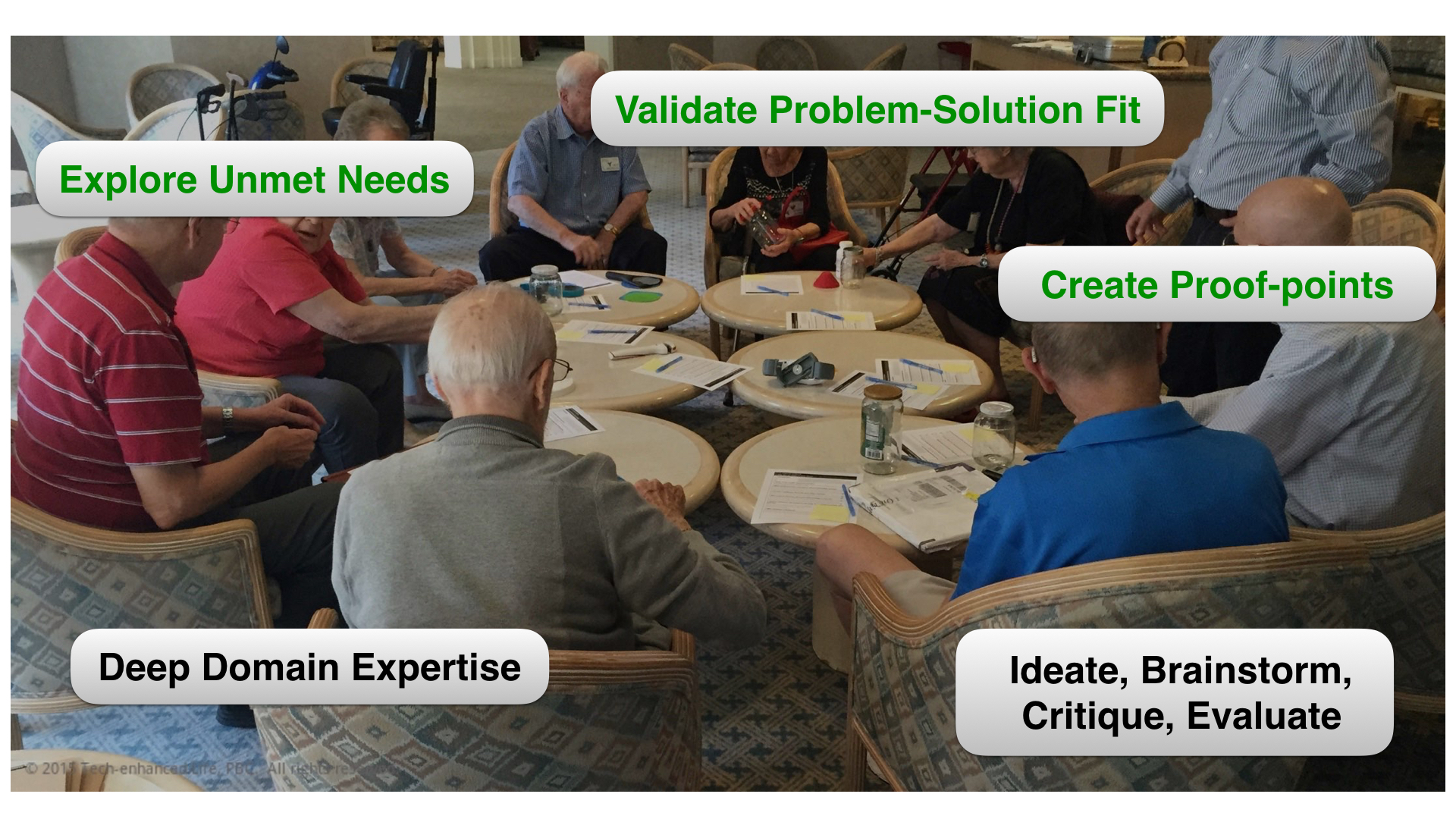Most of the companies we talk with are struggling, as they try to develop products and services that older adults, their adult children, and/or caregivers actually want, need, and will pay for. A common reason for this is a lack of inputs from older adults and caregivers themselves. Over several years, in a series of engagements with companies ranging from some of the largest companies in the world to raw startups, we have honed a variety of customer development approaches that can be used to help companies at different stages learn answers to different specific questions.
Here is what one of our Longevity Explorers had to say:
“People keep trying to sell us these products that are frankly not very useful. Why don’t they ask for our inputs before they spend years, and $millions, developing the product?
That way, they might develop products we actually need, want, and are happy to pay a premium for.“
Lack of Older Adult & Caregiver Inputs
As the explorer quote above suggests, all too often companies come to us with products they have developed, or almost finished developing — and they are frankly underwhelming.
There are a number of reasons for this, some of which we have addressed in various articles on this site and in our “Learnings” course for product developers. The common theme is a lack of inputs from older adults and caregivers themselves during the development process.
All too often, companies develop a product based on “what the founder’s grandfather might have needed”. Or on “what healthcare service workers, or clinicians, or senior living experts” say older adults should need.
In contrast, we have found that actually interacting with real older adults of the right type and their caregivers — in a structured carefully designed fashion — can yield insights that are often quite shocking to the product development team, and make a huge difference in developing a product that older adults and the caregiver / family ecosystem around them will actually want.
Customer Interaction: How We Can Help
Over several years, in a series of engagements with companies ranging from some of the largest companies in the world to raw startups, we have honed a variety of customer development approaches that can be used to help companies at different stages learn answers to different specific questions.
We have found that each company needs something different.
- Some need just a general immersion in the ways older adults think about specific problems or areas of opportunity.
- Some need general guidance about a specific “problem” that older adults or caregivers have.
- Some need some type of workshop with multiple carefully selected older adults and or caregivers who have whatever “issue” the company is focused on.
- Some need specific in-depth feedback in the form of one-on-one interactions, after an older adult or caregiver has been exposed to a concept or a prototype.
- Some need an in-depth co-design initiative with actual older adults or caregivers.
- Some need a standing “panel” of representative older adults or caregivers, who can provide regular and ongoing feedback as a product team iterates on an initial concept.
We can help with all of these and more.
Get Help Developing the “Right” Product (or Service).
Talk to us about what you are trying to accomplish and what the challenges are. We will recommend an approach; work with you to design the appropriate “customer interaction“; recruit the right type of older adults or caregivers or adult children; and facilitate and help interpret the interactions.
Start a Dialog. See how we can help:
Develop the “Right” Product or Service
Audio-recordings of Older Adults Discussions
If you are in search of some general insights into how older adults think about a specific topic or problem, but are not ready yet for specific hands-on interactions, you can browse our library of hundreds of audio recordings of Longevity Explorer discussions.
In them, the explorers cover a broad range of topics, including many of great relevance to people seeking insights into how older adults think about certain problems, and products.
